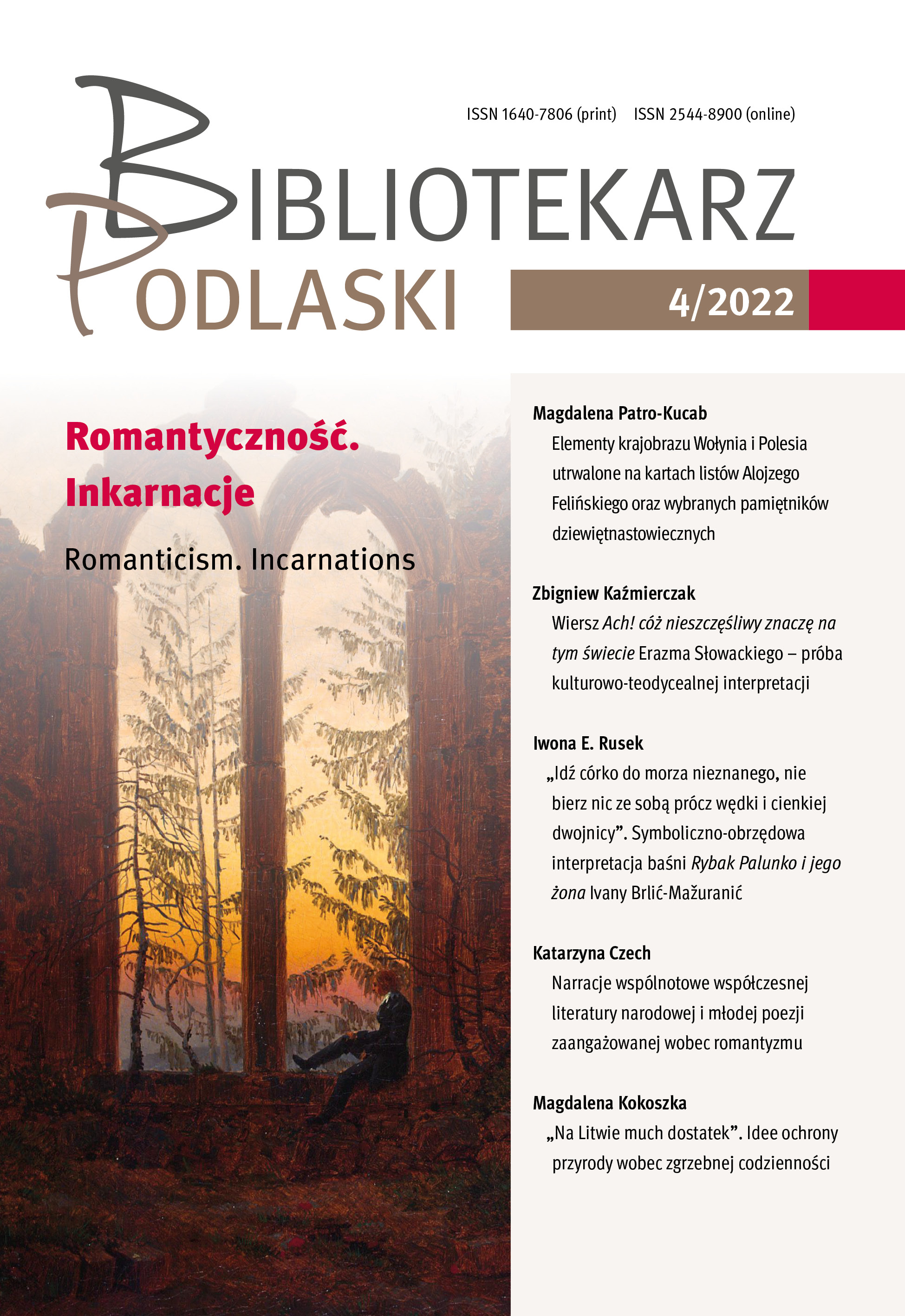Abstract
Juliusz Słowacki, a Polish Romantic poet and dramatist, was born in Krzemieniec, where he spent part of his life. As a result, he was well-versed in Ukrainian, and as a writer, he largely depended on Ukrainian settings, Ukrainian history, and Ukrainian folklore. Ukrainian themes became an inherent part of his literary works. Best
known for his masterpieces Balladyna (1834), Mazepa (1839), Lilla Weneda (1840), Jan Kazimierz (1839), Beniowski (1841), Sen srebrny Salomei (1843), and Ksiądz Marek (1843), Słowacki is now regarded as an outstanding writer, whose ideas and aesthetic values influenced generations of other European artists. Underrated during his lifetime, he appears at his most resplendent nowadays. The discourses of power in the works of Słowacki are given close attention because they are of crucial importance for his original texts. The multi-faceted personalities of numerous monarchs depicted by him, give an insight into the author’s understanding of power and its nature.
References
Agamben G., Homo Sacer: Sovereign Power and Bare Life, Stanford University Press, Stanford
Bloch M., Les rois thaumaturges: étude sur le caractère surnaturel attribué à la puissance
royale, particulièrement en France et en Angleterre, Paris 1924.
Bloom A., Shakespeare on love and friendship, Chicago 2000.
Bodin J., On Sovereignty, Cambridge and New York 1992.
Butler J., Precarious Life: The Powers of Mourning and Violence, London 2006.
Foucault M., Abnormal: Lectures at the Collège de France, 1974–1975, New York 2003.
Foucault M., Discipline and Punish: The Birth of the Prison, New York 2012.
Foucault, M., History of Madness. Routledge, London and New York 2013.
Foucault M., Security, Territory, Population, New-York 2007.
Kantorowicz E., The King’s Two Bodies: A Study in Medieval Political Theology, Princeton 1997.
Locke J., Second treatise of government, Indianapolis 2016.
Słowacki J., Four Plays: Mary Stuart, Kordian, Balladyna, Horsztyński, Warsaw 2019.
Słowacki J., Pisma, Tom 2, Lipsk 1860.

This work is licensed under a Creative Commons Attribution-ShareAlike 4.0 International License.
Copyright (c) 2023 Liliya Kornilyeva


